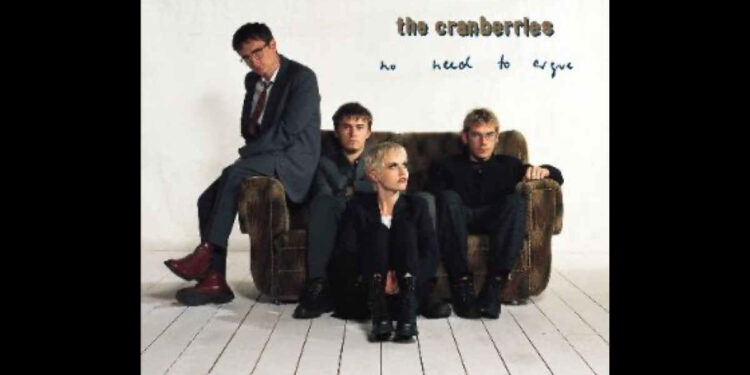
(Reybee) “It’s hard to believe it’s been 30 years since the release of No Need to Argue,” says The Cranberries drummer Fergal Lawler on the 30th anniversary of their landmark album, which was released on October 3, 1994 by Island Records. “Sometimes it feels like only a few years have passed, while other times it feels like an eternity. There are many memories still fresh in our thoughts.
“We managed to capture the band at a wonderful time in their history where they were riding the crest of a wave caused by the success of their debut album, Everybody Else Is Doing It, So Why Can’t We?,” according to Stephen Street, the producer. “Thirty years is a long time, and a lot has changed, but I believe it has aged nicely. “I am extremely proud of this album.”
No Need to Argue, the second album by the Irish alternative rock band, holds a significant place in the band’s history because it served as the band’s commercial breakthrough, with the trademark single “Zombie” helping drive the album to over 17 million worldwide sales.
“We feel so honoured that these songs have had such a lasting impact on people’s lives,” Lawler tells me. “We have heard so many stories of when people first heard The Cranberries on a tape or CD borrowed from a friend and then explored further eventually becoming hardcore fans.”
Often recognised as the album that helped establish Irish music in the global musical debate, No Need to Argue saw the critical darlings (whose debut Everybody Else Is Doing It, So Why Can’t We?) adopted by a global audience due to the album’s broad appeal. No Need to Argue, led by the instantly recognisable and blazingly unique vocals of the late Dolores O’Riordan, boasted a number of singles including “Ode To My Family,” “I Can’t Be With You,” “Ridiculous Thoughts,” “Dreaming My Dreams,” and, of course, “Zombie,” which reached No. 1 in Australia, Denmark, France, Belgium, and Germany and topped Billboard’s Alternative Airplay chart. It also won “Song of the Year” at the 1995 MTV Europe Music Awards.
Lawler reflects on the album’s recording process, saying, “We recorded the album in The Manor Studios in Oxford and Townhouse Studios in London. The Manor was a novel experience for us because it was a residential studio located in the countryside near Oxford, England. It was pretty remote, so there was nothing else to do but listen to the music.” The band was writing when they were interrupted by an unexpected visitor. “Paul Weller came to make a music video in the gardens of the house one day, so we got to meet him, which was a bit odd given that we all grew up listening to The Jam. “He and his father were absolute gentlemen!”
“There just seemed to be some ‘magic’ in the air, the band were at the top of their game and everything was so straightforward and easy,” Street tells me. “We had a really creative session at NYC’s Magic Shop Studios, recording tunes that were initially intended to be demos. However, they came out so good that I realised they were more than just demos. I was able to fine-tune them with the guys back in London before mixing them alongside the rest of the new songs.
After finishing the album, the band focused on the first single to be released, and they decided on “Zombie” as their first choice. “The great thing about ‘Zombie’ was that there was no pressure felt by myself or the band to make it a ‘hit single’,” reminds Street. “When we recorded it, we were having fun and they were blowing off steam, revealing a side of the band that had not previously been heard. We weren’t worried about generating a ‘hit’; we just wanted to make a terrific rocking track! It’s fantastic to watch the history that the song has made!”
“We knew we had something special with that song,” Lawler explains. The song’s political content, which details the horrible events of a bombing in Warrington, England in 1993 as a result of an ethno-nationalistic war in Northern Ireland known as “The Troubles,” nearly prevented it from being published as a single.
“We had to struggle to get it published as the first single because many people in the music industry thought it was too provocative. “We felt justified when the song became successful,” he explains. “‘Zombie’ meant a lot to us because of the heartbreaking narrative behind the lyrics, and we are both astonished and happy of the song’s effect, which continues to this day. It demonstrates Dolores’ belief in writing about emotionally charged situations.

